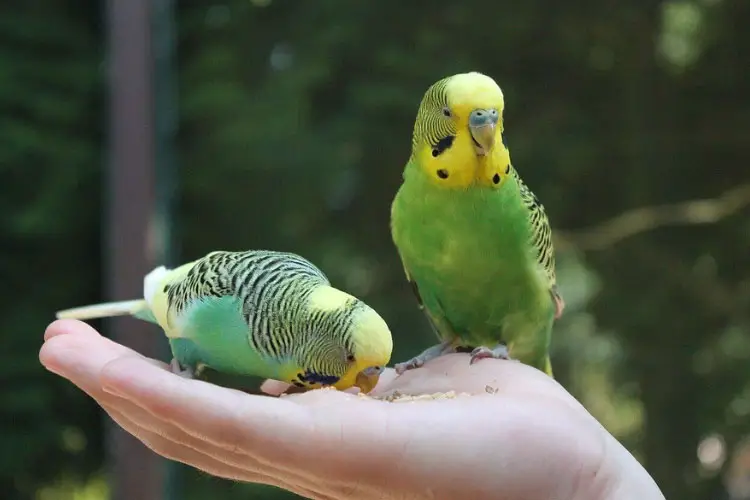Budgies, also called parakeets, use their beaks to feel objects and surfaces around them. These are not real bites, and no actual harm is done. New bird owners often wonder what nibbling means and what their next step should be.
So, why does my budgie nibble on my finger? Budgies may nibble on your finger for various reasons, including playing, expressing affection, and hunger. To determine the exact motive, check how often they bite, the biting intensity, and body language.
Budgies are friendly birds who can develop various habits with time. However, some of them have an underlying reason which should be investigated and solved, as you will learn in this article.
Why Does My Budgie Nibble My Finger?
There are several reasons budgies develop these habits. Below are the most common reasons your pet will nibble on your finger.
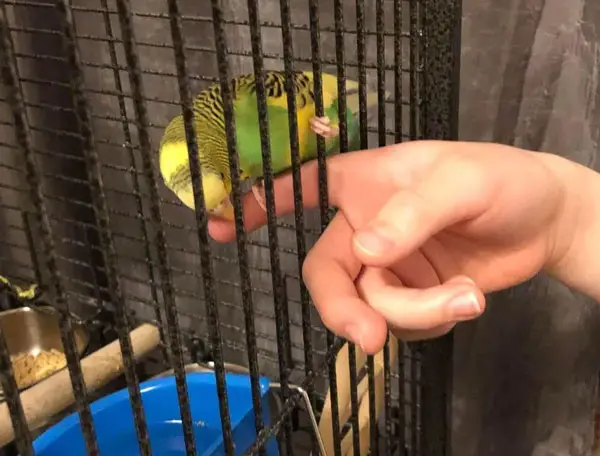
- Playing – Budgies use their beaks to play. A playful nibble is soft, and the bird will grind its beak left to right without actual biting.
- Curiosity – Budgies are curious birds who like to explore and know more. Baby budgie will gently nibble on your finger as a desire to know you better.
- Affection – Budgies are social birds who have a desire for attention. Pet budgies will sometimes nibble on your finger to express love and trust.
- Boredom – A bored budgie will also nibble on your finger to try to communicate. Your pet should have several bird toys in its cage.
- Hunger – A hungry budgie will often nibble on your fingers, seeking tasty treats. A hunger bite will be more intense and sometimes repetitive.
- Bite – If budgies are agitated or fearful, they can bite your finger. Unlike the soft nibble they do while playing, an anger bite is quick and intense. These bites happen if you invade their personal space and after disregarding other signs.
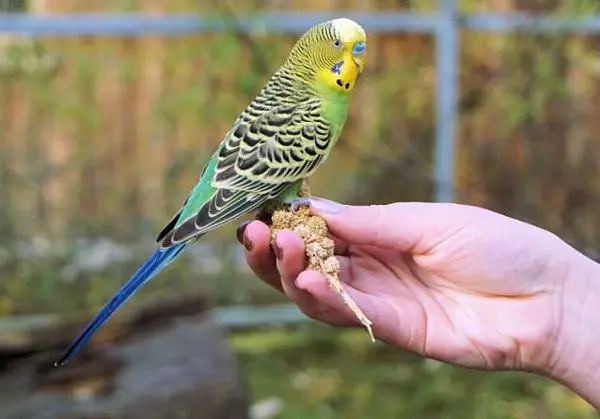
If your budgie keeps on nibbling your finger in a suspicious manner, you may get concerned. If you ever mishandled the bird, this may be the reason they do not trust you. You should start showing more kindness and ensuring you cultivate a good relationship. It may take some time so you should be patient as your budgie learns how to trust you.
Also read: Budgie Beak Discoloration
When Does Budgie Nibbling Become a Problem?
Most times, this is a normal behavior in various species of birds. These cuddly birds might only be showing affection or playing with you. However, if nibbling becomes a frequent habit during every interaction, it might signify an issue. The nibbling is also a problem if you or your family member has ornithophobia and doesn’t like being nibbled.
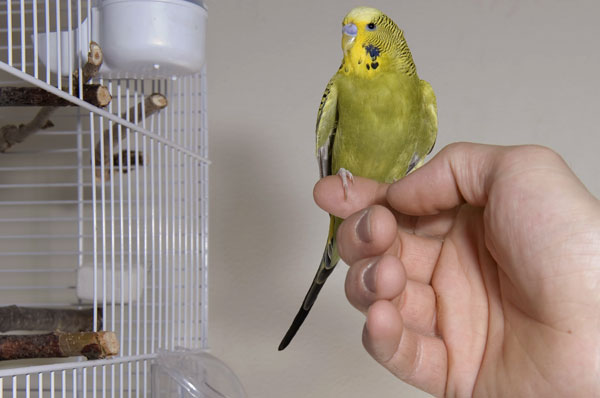
This habit can also signify a problem if the biting is more intense than usual. If the nibbling is often done, and the bird doesn’t quit after some time, this can also indicate a problem. Another issue is if the bird is also biting other mates in the flock, which can lead to a fight. Sometimes, you might have to consult an animal behavior specialist to determine the reason.
What Do I Do If Budgie Nibbles My Finger?
To decide the next step if your pet budgie has this habit, begin by understanding the course. If these affectionate birds nibble as a sign of their love, it’s a good thing, and you should encourage them to bond more. Beak trimming is also crucial if these cuddly birds love playing with your fingers to avoid injuries.
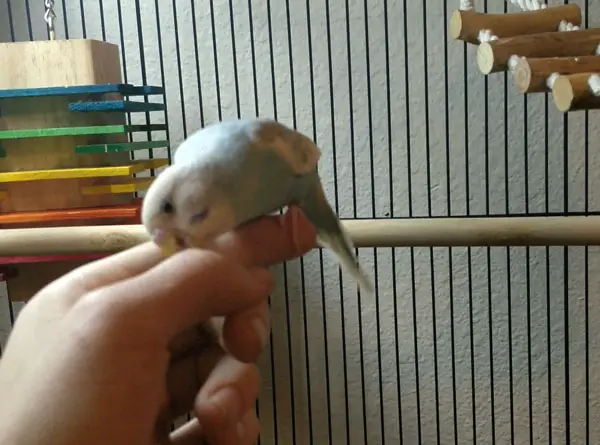
However, if your bird is biting due to fear, improve its environment by removing things that might scare it. Also, always feed your pets before playing with them. Familiarizing with these pets can also improve your bond and reduce their fear of you.
FAQ
Most times, it’s concerning when these beloved birds nibble on parts of the body like fingers. Since they can’t talk and tell the reason, many bird lovers are left with many questions. Below are some of these frequently asked questions and their answers.
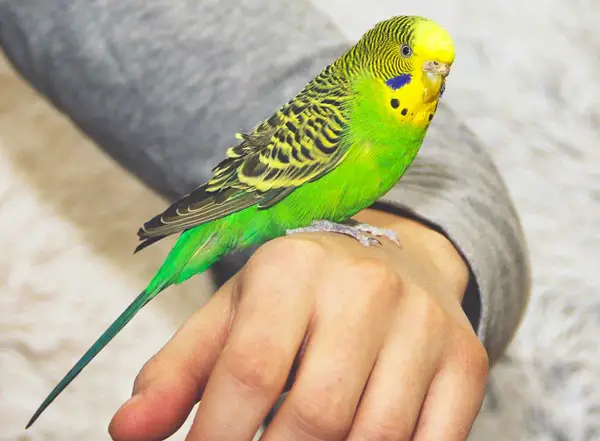
These flock birds show their affection to their pet parents by sometimes nibbling them. If your budgie preens your finger, it is their way of expressing their love. It is also a sign your pet is in a great mood and you’ve bonded well.
In most cases, the nibbling might mean quite the opposite, and the bird actually likes you. However, if these habits keep happening with the pet biting harder, you should be concerned. Make the budgie’s environment safe, and bond with it to minimize the hostility.
Related: Do Budgies Like to be Held?
Conclusion
Birds use their beaks for almost every activity, including nibbling and eating. The nibble might sometimes be the bird expressing happiness or discomfort. To tell the difference, you can rely on the intensity of the bite and how often they do it.
A budgie that trusts its owner will nibble on their fingers as a sign of affection. An angry bird will also bite, though hard to express its displeasure. If agitated, not even attempting to pet the bird will calm it down. It is best to investigate the course of this issue soon before it evolves into a frequent habit.
